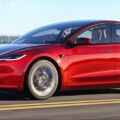Electric Vehicles
Date (default)
Brands
- Alfa Romeo
- AUDI
- BMW
- BYD
- Cadillac
- Chevrolet
- CITROEN
- CUPRA
- DACIA
- Dodge
- DongFeng
- DS
- Fiat
- Fisker
- FORD
- Geely
- Genesis
- GMC
- HiPhi
- HONDA
- hongqi
- Hyundai
- Jaguar
- JEEP
- KIA
- KTM
- Lancia
- Leapmotor
- LEXUS
- LOTUS
- LUCID
- Lynk & Co
- Maserati
- Maxus
- MAZDA
- MERCEDES
- MG
- Mini
- NIO
- Nissan
- Opel
- ORA
- PEUGEOT
- POLESTAR
- PORSCHE
- RAM
- RENAULT
- Riley
- RIMAC
- RIVIAN
- ROLLS-ROYCE
- SEAT
- Skoda
- SMART
- SUBARU
- Super Soco
- Suzuki
- TATA MOTORS
- TESLA
- TOGG
- Toyota
- VinFast
- VOLKSWAGEN
- Volvo
- Voyah
- Xiaomi
- XPeng
- Zeekr
- Drive Type: FWD
- Type: 5 door SUV, 5 seats
- Self Driving: No
- Airbags: Yes
- View Details →
- Drive Type: AWD
- Type: 4 door pick-up truck, 5 seats
- Self Driving: No
- Airbags: 8 airbags
- View Details →
- Drive Type: AWD
- Type: 5 door SUV, 5 seats
- Self Driving: No
- Airbags: Yes
- View Details →
- Drive Type: AWD
- Type: 4 door pick-up truck, 5 seats
- Self Driving: No
- Airbags: 8 airbags
- View Details →
- Drive Type: AWD
- Type: 4 door pick-up truck, 5 seats
- Self Driving: No
- Airbags: 8 airbags
- View Details →
- Drive Type: AWD
- Type: 4 door pick-up truck, 5 seats
- Self Driving: No
- Airbags: 8 airbags
- View Details →
- Drive Type: FWD
- Type: 5 door hatchback, 5 seats
- Self Driving: No
- Airbags: Yes
- View Details →
- Drive Type: AWD
- Type: 4 door pick-up truck, 5 seats
- Self Driving: No
- Airbags: 8 airbags
- View Details →
- Drive Type: AWD
- Type: 4 door pick-up truck, 5 seats
- Self Driving: No
- Airbags: 8 airbags
- View Details →
- Drive Type: AWD
- Type: 4 door pick-up truck, 5 seats
- Self Driving: No
- Airbags: 8 airbags
- View Details →














